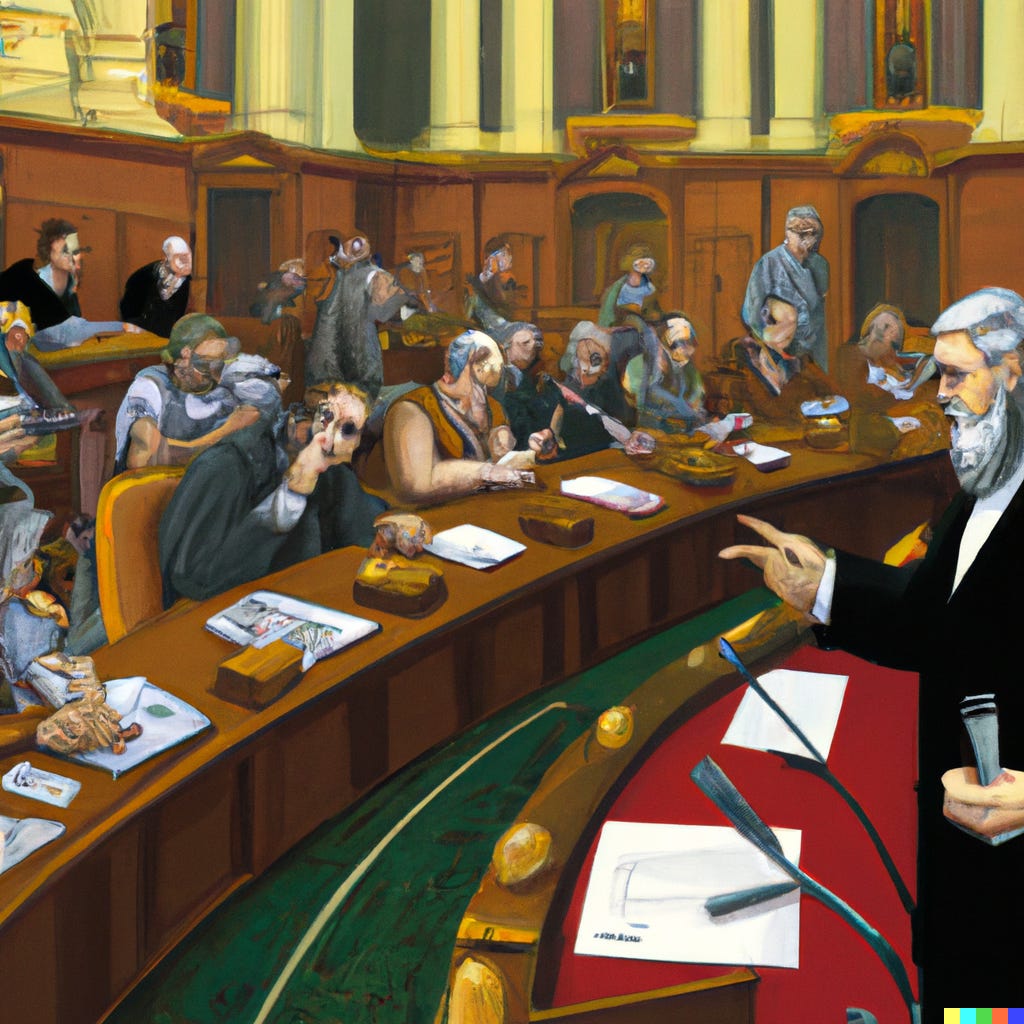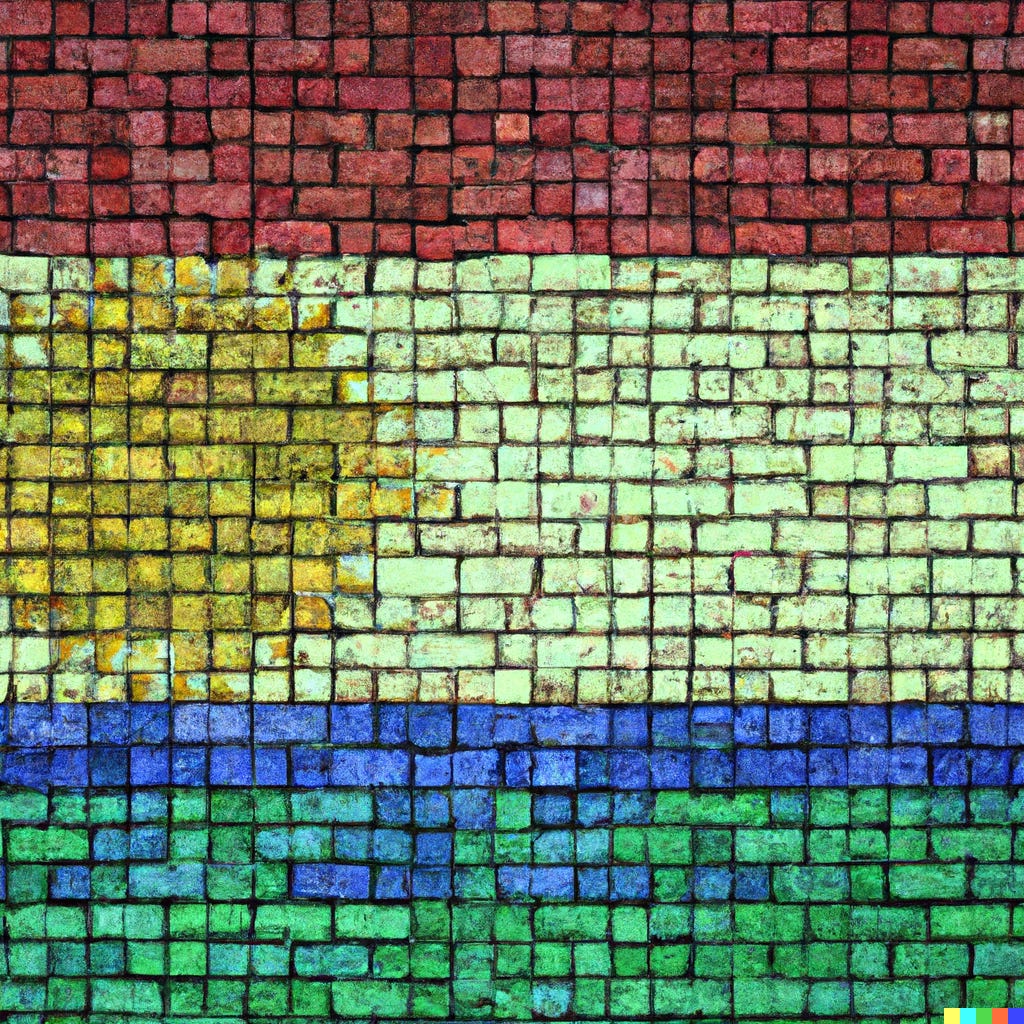Post #9: Society Series: The Next Government
Socrates communicated a form of governance that was 2,500 years ahead of its time.
“If you were heading out on a journey by sea, asks Socrates, who would you ideally want deciding who was in charge of the vessel? Just anyone or people educated in the rules and demands of seafaring? The latter of course, says Adeimantus, so why then, responds Socrates, do we keep thinking that any old person should be fit to judge who should be a ruler of a country?”
In Socrates’ eyes, voting is a skill that needs to be taught, whereas 21st century democracies make voting a birthright.
In the U.S. we have a representative democracy. That means we, the people, vote politicians into office who are supposed to represent our interests. In Athens, they had a more direct democracy, which means the people voted directly on each issue vs having a representative vote on their behalf.
Regardless of representative or direct, Socrates’ greater point was that decision making of any kind is best done by those most equipped to make a decision. A radical idea old Socrates had: we should have experienced captains captaining our ships.
Both the representative democracy of today and the direct democracy of yesterday aren’t our current best bet at making quality decisions. This post will explore how we could improve our governance methods to drive into a more relevant future.
As a reminder, this post is part of a series that I’m calling the society series. This series will explore the various systems that our society uses to determine and pursue meaningful goals. The first post explored our economic system.
What is The Government?
Government is people trying to manage our society. These people manage society by making decisions. These decisions can become laws that essentially turn certain perspectives into algorithms, helping the same good decision be followed time after time across situations. How decisions get made is determined by the prevailing political system, or the process by which government people collaborate.

Managing society through government entities has been an interesting experiment across human civilization, one that is far from fully baked.
To fly through our first few hundred thousand years of governance, we spent most of that time running around in small groups, likely with some mixture of an alpha-male based and/or informal majority rules governance system. Given the small groups, simple forms of governance worked ok.
Where governance started to get interesting is roughly 5,000-10,000 years ago. At that time we developed an agrarian society which meant larger groups of humans were staying in the same spots. These groups grew large enough that we needed more robust systems to govern social interactions.
Government Types We’ve Seen So Far
Thomas Hobbes, a 17th century English philosopher, borrowed from Aristotle's analysis to paint a simple and helpful picture of the various forms of government. He said that a government is “for either one, or more, or all.” What Tommy boy meant is that a government can be an autocracy where only one person is calling the shots, an oligarchy where a group of people are calling the shots, or a government can be a democracy where all the people are calling the shots. It’s maybe an obvious breakdown, but I find it a helpful high-level organization of our options.
While there are a million flavors and combinations of government that exist along this “one to all spectrum,” our society has been trending towards trying to let all people participate. The last few centuries we’ve seen democratic forms of government spreading to more countries than any other type. Less kings, more voters.
Given its traction, let’s look a bit closer at this democracy concept. The word “democracy” translates to “rule by the people.” The ancient Greek city of Athens circa 500 BC was the first group to popularize the term democracy. While it’s likely that the first democracies actually predated Athens in India, Mesopotamia, and Phoenicia, Athens often gets the recognition since they branded it.
Why has democracy caught on?
It has caught on because it generates better decisions over longer periods of time than one person or a small group can. When a large group of people is ruled by one or by few, then the failure point is higher risk. All it takes is for that one autocratic leader or that small oligarchic group to go off the rails and everyone gets screwed. Even if it’s not blatant corruption, it’s easy for an individual person or small group to lose touch with reality and become incapable of making good decisions. A system where all or almost all participate in rule is less susceptible to failure because it would in theory require more than half the population to go off the rails in order for the rest to get screwed. The intuition behind democracy is similar to Sybil-resistant computer networks like some blockchains.
It’s not that an autocratic government where one person rules or an oligarchy where a small group rules can’t work, it’s just that those forms of governance seem to generate worse decisions over the long run due to the higher risk nature of having such small numbers of people be in charge of decisions.
While democracy is the most respected form of government today, we’ve started to see many cracks. I’ll look at how we might fill some of those cracks at the end of this post.
Why Are There So Many Governments?
As of 2022, there are roughly 200 separate national political entities, or countries. Each of these 200 groups of people have their own system of government.

Then within each of these countries there are many smaller political entities. Let’s use the United States as an example. The U.S. is a country with one “federal” government in charge of country-level decisions, then there are 50 states each with their own government, then within those 50 states there are roughly 30,000 cities each with their own government, then within those 30,000 cities there are even more local breakdowns into community boards, neighborhood watches, school districts, and other quasi-governmental entities.
What’s fascinating about governance within just a single country is the various levels of government. By looking at the U.S., it becomes clear that we’ve developed different levels of government to manage different size geographies. And each geographic level of decision making requires a different expertise. A local community government would have a tough time making informed decisions for the country of America, and likewise the federal government of America would lack the expertise to make decisions for a local community. It begs the question: does our society have all the levels it needs to manage ourselves? And do those levels interact in the most effective ways?
Another interesting insight is that each person has a vested interest in each level of government. For example, I live in Austin, Texas, in a neighborhood called East Austin. At a high-level, I am interested in what the American federal government decides, then I am interested in what the state of Texas decides, what the city of Austin decides, and finally I am interested in what the community of East Austin decides. And yet, I have no simple way to follow along with the decisions made at these different levels let alone participate in the decision making process.
All in all, we’ve created quite the complex system for ourselves, which means there are a lot of opportunities for improvement :).
The Next Government - Upgrading Democracy
Our civilization’s governance strategy needs to undergo at least a few major changes: 1) We need to create transparency at all levels- local, national, and global. We need to enable each citizen to dynamically participate in the governance process. Whether that participation be active or just being able to easily follow along. 2) We need to evolve our idea of democracy, moving away from the perspective that everyone should vote on everything, whether through a representative or direct model. We need to make it so the most relevant people vote on decisions that they are equipped to vote on. This would create a more “relevant democracy.” 3) We need a new level to our society’s governance model capable of global decision making. We now have a set of global problems- climate change, pandemics, AI risks, nuclear war, terrorism, etc.- that require a government with a global focus. We’ve tried global entities like the United Nations, but we haven’t found an effective implementation.
Making these updates will not be simple. We would need to enable a high volume of secure decision making in addition to maintaining a trusted source of which person should weigh in on which topic. Luckily, with modern computing, the internet, and now web3, we don’t require huge technological leaps to enable this more “relevant democracy.”
Figuring out how to effectively apply the technology at our disposal will be a difficult, thought-provoking, and highly worth while endeavor. Our next governance system will ensure that the best available people are leveraged for each decision, unlocking a quality of decision making never before experienced. While this new system will look very different from what we’ve known, we will learn to trust our government once again.
Next Up
The next post will explore religion. Similar to this post’s exploration of government and the previous post's exploration of the economy, we’ll ask questions: How does religion work? What does it do for us? How do we make it better?



